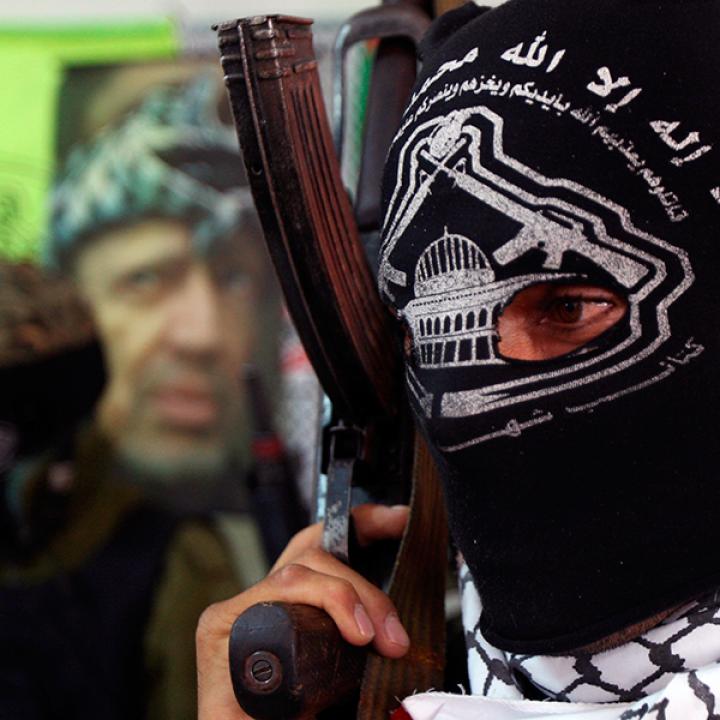
- Policy Analysis
- Articles & Op-Eds
The P.L.O. Verdict Should Be No Surprise

The PA's complicity with terrorist groups is well documented, and this week's verdict gives the international community a chance to demand that Ramallah pursue peace through peaceful means only.
When the Palestinian Authority was created as a product of the Oslo Accords the intent was to establish a responsible Palestinian entity that could negotiate peace terms with Israel and build the foundation for a Palestinian state that would live in peace, side-by-side with its neighbors, including Israel. But as a New York jury found in a federal court decision this week, the PA has sometimes pursued peace, sometimes supported terror, and during the Second Intifada (2000-2005) frequently pursued both at the same time.
Palestinian Authority leaders sometimes believed a measure of violence would provide leverage for negotiations, or felt the need to support violent activities to compete with militant Palestinian groups like Hamas for constituent support. This frequently involved competition not only for political and social credentials but militant ones as well, depending on where the political and negotiation pendulums swung at any given time.
In light of the extent of available evidence of PA support for terrorism, the verdict should not surprise. Some cases of PA involvement in terrorist activity involved senior PA officials. For example, Arafat approved funding for Palestinian terrorists, including a June 2002 payment of $20,000 to the Al-Aqsa Martyrs' Brigades just as the group claimed responsibility for a suicide bombing in Jerusalem. As early as October 2000, Hamas leader Mahmoud Zahar announced that Hamas and Islamic Jihad leaders were meeting with Fatah and PA officials "at least once daily."
The Palestinian Authority openly ran a "Fund for Families of Martyrs and the Injured," which provided cash to families of martyrs and those injured during the conflict with Israel. According to the World Bank, "the program is clearly not targeted to the poorest households. While some assistance should be directed to this population, the level of resources devoted to the Fund for Martyrs and the Injured does not seem justified from a welfare or fiscal perspective."
In other cases, the PA was tied to terrorist activities through lower level officials. For example, in January 2004, PA policeman Ali Yusuf Jaara carried out a suicide bombing on a bus in Jerusalem. Both Fatah's al Aqsa Martyrs Brigades and Hamas claimed responsibility for the attack, which killed 11 people and injured over 50.
The Palestinian Authority's complicity with Palestinian terrorist groups is well-documented within the PA's own files as well. One seized PA report documents how PA General Intelligence passed to its Ramallah office a list of 232 terrorists wanted by Israel, asking the office not to arrest them but to warn them off. In another report, senior Palestinian security supplied Islamic Jihad "and Hamas in the Jenin area with most of the weapons in their possession."
Coincidentally, the verdict comes on the heels of the White House summit on countering violent extremism which was convened, President Obama made clear, "because we are united against the scourge of violent extremism and terrorism." Such unity of purpose in the face of violence and terrorism must apply to the pursuit of peace as well.
This week's verdict -- together with the renewed international focus on isolating and delegitimizing those engaged in violent extremism -- offers an opportunity for the international community to demand that the PA pursue peace through peaceful means only. The verdict is just one example of the type of costs the PA itself, and the project for Palestinian statehood more generally, will incur if it fails to do so.
Matthew Levitt is the Fromer-Wexler Fellow and director of the Stein Program on Counterterrorism and Intelligence at The Washington Institute. Read other contributions to the New York Times "Room for Debate" panel on the verdict.
New York Times



